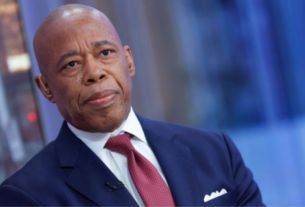Cryptocurrency trading is booming in India’s smaller towns and rural areas as young investors look for alternative income sources. With traditional job growth slowing and wages stagnating, many see crypto as a way to build wealth despite regulatory uncertainties.
“Young people in small cities are more interested in crypto than ever,” said a Mumbai-based exchange operator. Many first-time traders are entering the market, hoping for quick profits.
India has one of the highest numbers of crypto investors in the world, with an estimated 115 million holders. While urban traders have long dominated the market, rural participation is rising fast.
Smaller towns such as Jaipur, Indore, and Lucknow have seen a surge in crypto trading activity. More traders from Tier 2 and Tier 3 cities are using mobile apps to buy and sell digital assets.
The country’s high unemployment rate has fueled interest in alternative investments. Many young Indians struggle to find stable jobs and view crypto as a potential financial opportunity.
“Finding a good job is difficult, but I can make money trading crypto,” said a 25-year-old trader from Bihar. He started investing after failing to secure employment despite having a college degree.
India’s economy has grown, but job creation has not kept pace. The labor market remains weak, especially in rural areas where traditional employment options are limited.
Crypto exchanges have reported a rise in new users from smaller towns. Platforms like WazirX, CoinDCX, and Binance have expanded their services to cater to these traders.
The Indian government has taken a strict stance on crypto, imposing a 30% tax on digital asset profits. Despite this, many traders continue investing, driven by the promise of high returns.
“People are aware of the risks, but they still invest,” a local crypto analyst said. Many young traders see digital assets as a way to escape financial struggles.
The rise of low-cost smartphones and cheap internet access has helped crypto spread across rural India. Even small investors can trade with as little as ₹100, making it accessible to many.
Social media influencers and YouTube channels have played a key role in promoting crypto. Many young Indians learn about trading through online videos and Telegram groups.
However, financial experts warn that crypto is highly volatile. The global market has seen extreme price swings, and many investors lack proper risk management strategies.
“Crypto is not a guaranteed way to make money,” an economist at a Delhi think tank said. He urged traders to educate themselves before investing large sums.
The government is considering new regulations to control crypto trading. Officials worry about financial fraud and potential risks to the banking system.
Despite regulatory uncertainty, crypto’s popularity continues to grow. Many Indians prefer digital assets over traditional investments like gold or real estate.
Banks have also tightened restrictions on crypto-related transactions. Some traders use peer-to-peer (P2P) transfers or foreign exchanges to bypass banking limits.
India’s youth remain optimistic about crypto despite government warnings. Many see it as a way to achieve financial independence in a challenging economy.
The Reserve Bank of India (RBI) has repeatedly cautioned against crypto trading. The central bank has pushed for a digital rupee as an alternative to decentralized currencies.
For now, crypto remains a major financial trend in India’s smaller cities. The market’s future will depend on government policies and global industry developments.
As job growth remains slow, more Indians may turn to crypto as an alternative income source. The coming months will determine whether this trend continues or faces regulatory hurdles.




